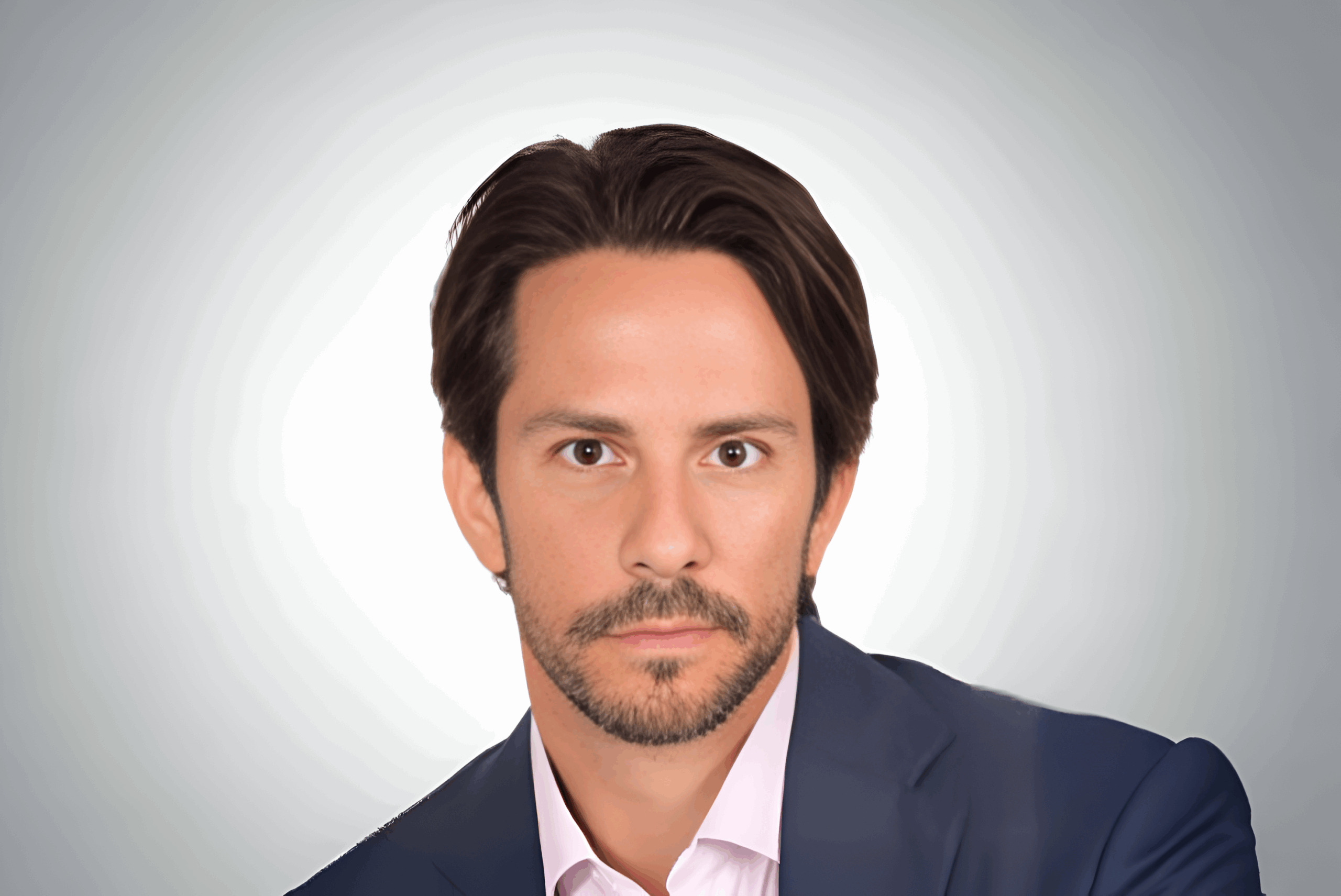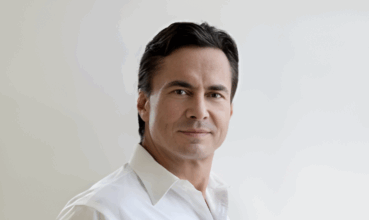As much of the U.S. office market grapples with high vacancy and shifting tenant expectations, Vibe Office Properties is finding success by focusing on how a space feels. At the core of its ...
BEB Capital's Strategic Evolution from Family Office to Institutional Player




“When you partner with people who are best in class and share the economics, you achieve better outcomes than trying to do everything yourself,” says Lee Brodsky, CEO of BEB Capital, reflecting on the company’s transformation from family office to institutional-grade real estate investment firm.
Under Brodsky’s leadership since 2017, BEB Capital has strategically expanded across multiple real estate sectors, with particular emphasis on its growing credit platform and key partnerships that have elevated the firm’s market position.
From Commercial Broker to Visionary CEO
After graduating from Emory University with a concentration in real estate, Brodsky began his career at a boutique brokerage firm in New York before joining Newmark as a commercial leasing broker.
“I traveled the country representing tenants and landlords on their office, industrial and retail leases,” Brodsky recalls of his time at Newmark from 2006 to 2017. “I built out my network, learned how to sell myself and my capabilities, and developed trust-based relationships that became foundational to my career.”
During this period, Brodsky’s father, a healthcare technology entrepreneur, had been quietly assembling a portfolio of real estate assets. Recognizing an opportunity to merge institutional expertise with entrepreneurial success, Brodsky made the pivotal decision to join the family business.
“I saw potential in combining his track record of successful real estate transactions with my institutional experience to create a more sophisticated investment firm we could grow together,” he explains.
The Institutional Transformation Challenge
Transforming a family office into an institutional-grade investment firm presented significant challenges that Brodsky addresses with refreshing candor.
“It sounds much easier than it actually is,” he admits. “It’s a very daunting task, especially when it comes to building the right team at the right time. Many people say that the team that takes you to X dollars isn’t the same team that takes you to 2X dollars. That’s a common challenge within growing businesses.”
Despite these obstacles, Brodsky highlights three pivotal achievements that have defined BEB Capital’s evolution:
- Strategic Institutional Partnership: “Our partnership with Rockpoint on our industrial portfolio established our credibility among institutions as both a reliable equity partner and operator.”
- Brooklyn Development Projects: “We collaborated on exceptional projects in Brooklyn through best-in-class partners and rezoned four sites, delivering affordable housing, revitalizing neighborhoods, and creating truly outstanding developments.”
- Credit Platform Launch: “We launched our credit platform in early 2020 after extensive planning, coincidentally on March 15, 2020—just as the pandemic began reshaping markets.”
This timing, while seemingly unfortunate, proved advantageous. “We entered the market when credit markets were frozen. Most financial institutions were inactive due to uncertainty, which created unique opportunities for us to deliver great returns while taking relatively little risk.”
Building a Powerhouse Advisory Team
To support its next phase of growth, BEB Capital recently expanded its advisory team with three strategic appointments: Jeffrey Weiner, former CEO of Marcum LLP; Christopher Giamo, former Executive Vice President and Head of Commercial Bank at TD Bank; and Adam Radosti, who co-founded Ionic Capital Management LLC in 2006 and served as a Principal and Portfolio Manager.
Brodsky’s relationship with Weiner spans two decades, dating back to his time at Newmark. “Jeff taught me how to be an institutional advisor,” Brodsky says. “He taught me to be prepared. I learned not to approach him with problems without having proposed solutions ready.”
When Marcum sold to CBiz, Brodsky was determined to maintain their professional relationship. “I said, ‘This can’t be the end of us working together. Your guidance has been invaluable for my development. Can you help me scale a business?'”
Giamo brings extensive banking expertise that aligns perfectly with BEB Capital’s growing credit platform. “Chris has been a mainstay in banking for decades and has worked extensively with our family,” Brodsky explains. “His financial lending expertise makes him a natural fit for our strategic direction.”
Radosti, who has been involved with BEB Capital since its inception, brings valuable risk assessment capabilities. “Adam ran his own hedge fund in New York City,” Brodsky notes. “Financial professionals bring perspectives on risk and return that significantly enhance our approach to investments.”
Together with Brodsky’s father, these advisors form what he calls the “four legs of the stool” supporting BEB Capital’s growth. “Observing their interactions with each other and our team, seeing how they challenge us, it elevates our performance to the level needed for continued growth.”
Strategic Capital Deployment
BEB Capital’s current focus is expanding its credit platform, which provides senior secured bridge loans for light transitional assets in an underserved market segment.
“We operate in the sub-$20 million space,” Brodsky explains. “While there are many players in the broader market, fewer competitors focus on this particular low to middle market segment.”
This strategy complements the firm’s approach to equity investments, which emphasizes partnerships with specialized operators. “We’ve discovered that partnering with best-in-class operators and sharing economics yields better outcomes than attempting to control everything ourselves,” Brodsky says.
This philosophy extends to his leadership approach: “I prefer surrounding myself with exceptional talent and empowering them to excel in their areas of expertise, rather than trying to manage everything personally.”
The Private Capital Advantage in Real Estate
Brodsky sees substantial growth potential in private credit for real estate, driven by regulatory constraints that limit traditional lenders’ ability to execute quickly.
“There’s been tremendous growth in private credit, and I believe we’re only at the beginning of this trend,” he states. “Regional banks face ‘know your customer’ requirements, depository requirements, and other processes that consume valuable time.”
This creates opportunities for nimble private lenders like BEB Capital. “Many worthwhile real estate transactions are time-sensitive,” Brodsky notes. “What makes them attractive opportunities is the ability to execute quickly.”
BEB Capital’s competitive advantage stems from its real estate expertise and streamlined approach. “Our primary focus is understanding asset value and exit strategies,” Brodsky says. “As real estate professionals who actively acquire properties, we apply the same principles to lending. The best deals we’ve completed have been executed rapidly.”
Market Opportunity: Small Bay Industrial
Drawing on extensive experience as industrial property owners, Brodsky identifies a compelling opportunity in the small bay industrial marketplace that many investors have overlooked.
“Analyzing vacancy rates by size reveals that larger facilities have double-digit vacancy rates, while smaller facilities maintain low single-digit vacancy rates,” he explains. “During the recent construction boom, developers prioritized large industrial spaces for users like Amazon, neglecting smaller facilities.”
This development pattern has created a supply-demand imbalance. “The economics don’t necessarily support building smaller facilities,” Brodsky points out. “Designing a 500,000-square-foot building requires similar effort to designing a 50,000-square-foot building, so the return on effort favors larger projects.”
Meanwhile, demand for smaller industrial spaces continues to grow. “Local service providers: electricians, plumbers, HVAC technicians, all need office space combined with storage for materials,” Brodsky says. “This product type remains chronically undersupplied.”
While recognizing significant opportunity in this sector, Brodsky acknowledges the challenges of institutionalizing it. “It resembles an industrial version of multi-family more than traditional industrial. You have varied lease terms and risk diversification similar to multifamily, but within industrial spaces.”
Currently, BEB Capital is actively investing in this space through its lending platform. “Of our current $120 million in loans from our first fund, approximately half involve industrial properties,” Brodsky reveals. “Within that industrial portion, one-third is shallow bay/small bay, one-third is industrial outdoor storage, and one-third is traditional boutique warehouse.”
Looking Ahead: Building on a Strong Foundation
With its strengthened advisory team and clear strategic focus, BEB Capital is positioned for its next growth phase. While Brodsky couldn’t share specific details about an upcoming June announcement due to regulatory constraints, he indicated it would represent “the next generation of this credit business” and advance the firm “into the future.”
The appointment of new advisors establishes “the foundation to build the skyscraper,” Brodsky says. “We are approaching a significant milestone that represents new territory for our organization.”
Similar Articles
Explore similar articles from Our Team of Experts.


If you’re a first-time property owner, you might be scratching your head wondering, “How much do property managers charge in California?” The answer, as always, depen...


“What gets measured gets done. You can’t evaluate what you can’t measure.” – Larry Stone, Santa Clara County Assessor In Silicon Valley, where tech innovations and ...


“We’re fully integrated. We manage, we lease, we acquire, probably three-quarters of our deals off market. We move quickly. We’re honest guys. We don’t retrade,”...
Looking for a real estate investment opportunity with a potential return on investment as big as the Lone Star State? Dallas, Texas is the place to be. Getting started with real estate...




